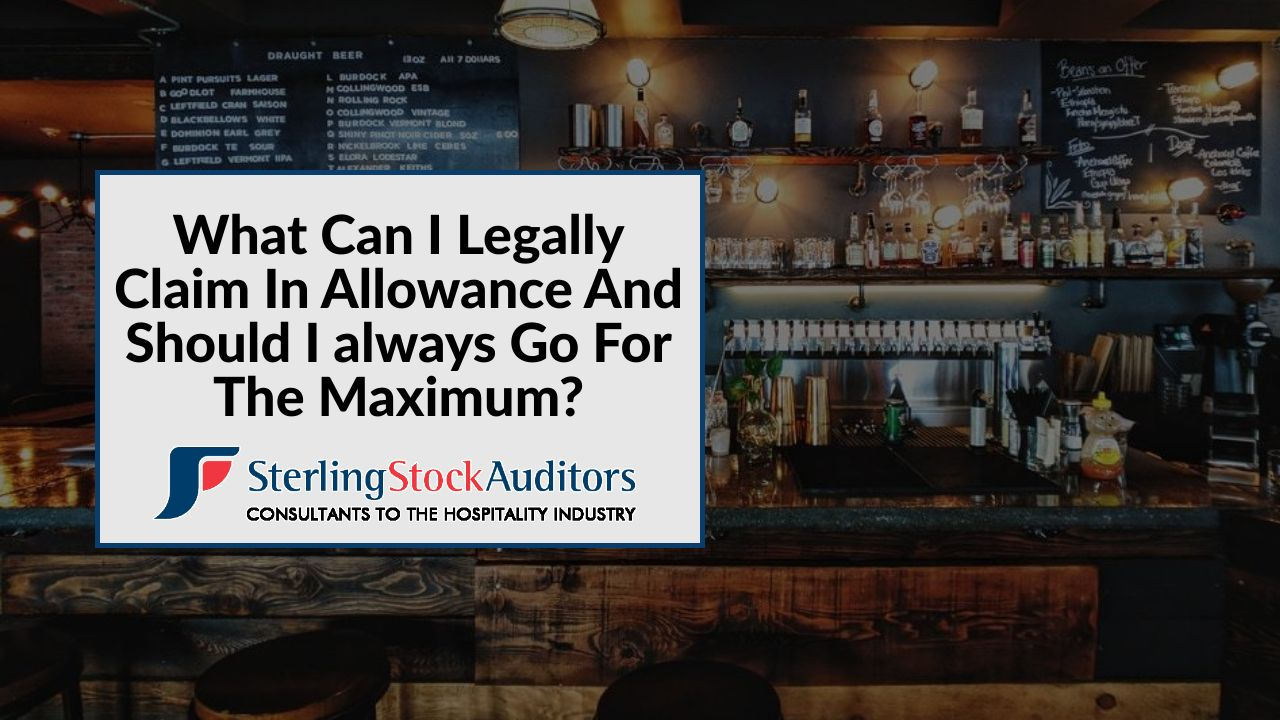
What can you legally claim as allowances, and should you go for the maximum?
First of all I’m going to caveat this, I am not an accountant, I’m not a tax advisor, they are the people you should be going to first and foremost.
From a stock taking point of view, I believe that you should always put down truthfully what you’ve used that hasn’t caused revenue.
That includes;
- Pipe cleaning,
- If someone has dropped a bottle of something and you haven’t had the revenue for it,
- If you’ve given it away as a complimentary because it’s someone’s birthday, again you haven’t had the revenue
- If you transfer alcohol from the bar into their kitchen, so it might be some beer for beer batter, this is one a lot of people forget about, really that should be transferred from the bar to the kitchen, it should be across to the kitchen and an allowance to the bar.
- It might be that you you doing some liqueur coffee, so the liqueur needs to go over,
- Real ales, you need to keep a close eye on what you use when you’re changing the barrel, and at the end of it what sediment is left, what is left in that barrel?
It’s quite usual for to have a couple of pints left in the barrel, there’s something supposed to be 72 points to a nine at a furkin, some customers will work out on a yield of 70, we always work on a yield to 72 but we will put an allowance through for the two pints. - Owner’s drinks, now this one again, talk to your accountant, but my understanding is if you put owners drinks as an allowance, it’s a benefit in kind so it’s taxable, it is also not good practice to put your drinks through on a table, on a tab, it doesn’t set a good example to your staff, if you want the staff not to be stealing from you and having free drinks, they need to see you paying for it.
And if you can prove you paid for it then you can’t get taxed on it as a benefit in kind.
So for stock taking purposes put everything down that you don’t get revenue for.
As far as claiming back from your accounting, you don’t claim it, what it does is it reduces your profit for the year, and if it’s too low, you can go to the accountancy, to the HMC and say it says an investment for these reasons.
But as far as allowances for tax purposes your first call should really be your accountant or your tax advisor because they know tax law.

